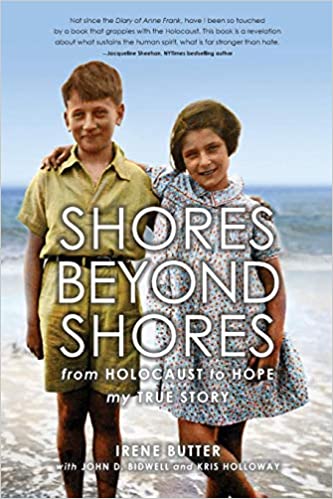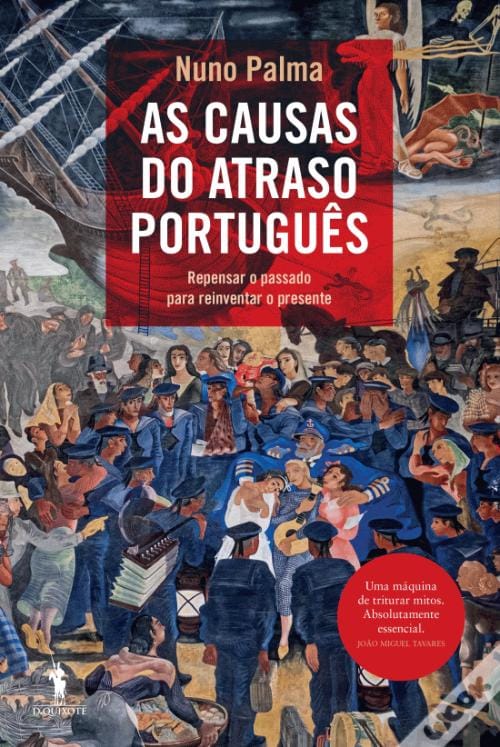By Irene Butter (2018)
Pages: 445, Final verdict: Must-read
Like so many Jewish families, the life of the Hasenbergs was shaken as the Nazis rose to power in Germany. In Shores beyond Shores, Irene Butter walks us, in the first person, through her family’s terrorizing experience during World War II. Fortunately, Irene survived to tell her story, which she does beautifully in this book.
Irene and her Jewish family lived a happy life in Berlin before the nightmare that would change their lives forever began. After Hitler rose to power in 1933, the signs that such change was coming became more and more prevalent as time went by. Soon Irene’s grandfather was forced to hand the bank that he built and nurtured during his whole life to someone else - a non-Jewish. Soon after, Jews were banned from using public transport and pretty much everyone turned their back on them out of fear of retaliation from the authorities.
In 1943 the Hasenbergs were sent to Westerbork in the Netherlands, the first concentration camp they would go through. It is strange to see how Irene describes it as “not that bad”, but, as you read about the conditions in the following camps they went through, you understand why.
“How can Auschwitz be worse than this? We’ve been taken from our home. Who knows who has all our stuff we left behind. We’re bored and doing stupid work. The food we brought is gone, and the camp only has gross soup and stale bread. And we have to use a big open bathroom with no door!” I felt panic rising in my throat.
(...)
“They don’t just bore you or even starve you at Auschwitz. They kill you. I had to hear it a lot before I believed it. They kill people at camps like Auschwitz. They kill Jews like us…and like Rudi.”
Every Saturday, a long train with empty wagons arrived in Westerbork. People at the camp knew that it would leave full of people, full of them, the following Tuesday, headed to other concentration camps such as Sobibor and Auschwitz. Like everyone else, Irene and her family’s only wish was that their names were not on the list that week… or the following… or the following… Until one day they were. Luckily, Leo Buschoff, a friend of Irene’s father from WWI spotted their names on a list to go to Auschwitz and used his influence to remove them, saving them from certain death.
Irene’s father and his connections saved the family multiple times. Obtaining passports from Ecuador for the whole family saved them from deportation to Auschwitz for the second time, where most likely they would have been assassinated. Instead, they were exchanged for German prisoners and taken to Switzerland.
The whole description of the family’s last trip towards freedom is heart-breaking. Irene captures the reactions of the Red Cross nurses who assisted the former prisoners on the train. You can almost feel their shock with the conditions these people were in and their determination to save as many people as they can. All this combined with the sad realization that they cannot save everyone.
Sadly, Irene’s father, who had been brutally beaten the day before they were exchanged, succumbed to the injuries and passed away on his trip towards freedom. He protected his family and saved them from being murdered by the Nazis, but he did not live to see what freedom after the war was. Irene, her mother, and her brother survived and restarted their lives in the United States. The family relatives who welcomed them in New York told Irene that she should forget everything she had gone through and never think or speak of it again. And so she did, for forty years, until she decided to tell her story.
Bottom line
I have always been deeply moved by everything related to the Holocaust, particularly how humans can be that evil to one another. Equally mesmerizing to me is that it all happened in the past 100 years, not 500 or 1000 years ago. At the same time, I am haunted by the idea that those who survived the Holocaust to tell the story in the first person are not going to be around forever. Because of that, I am committed to doing my part to keep their stories alive, in an attempt that history does not repeat itself. So, here is my ask: read this book and recommend it to at least one friend.
Learn more
This article was written by a guest author, André Cardote.



